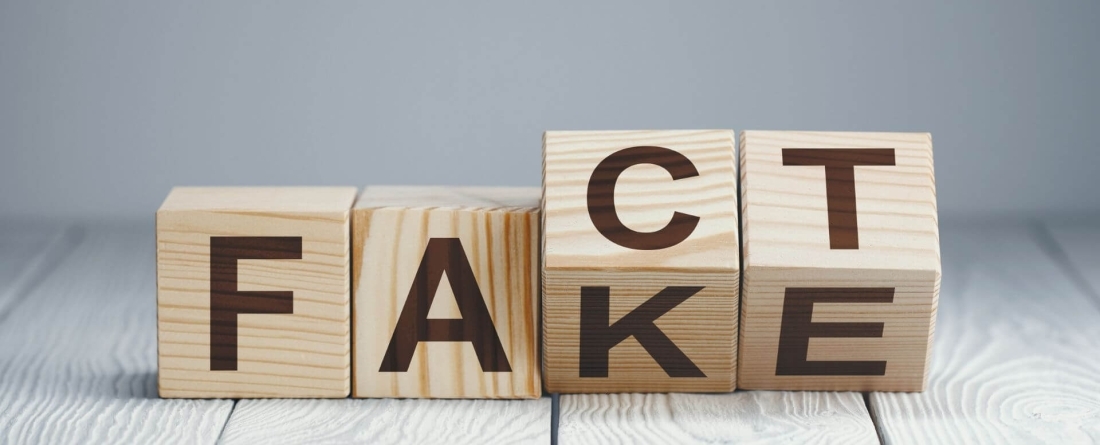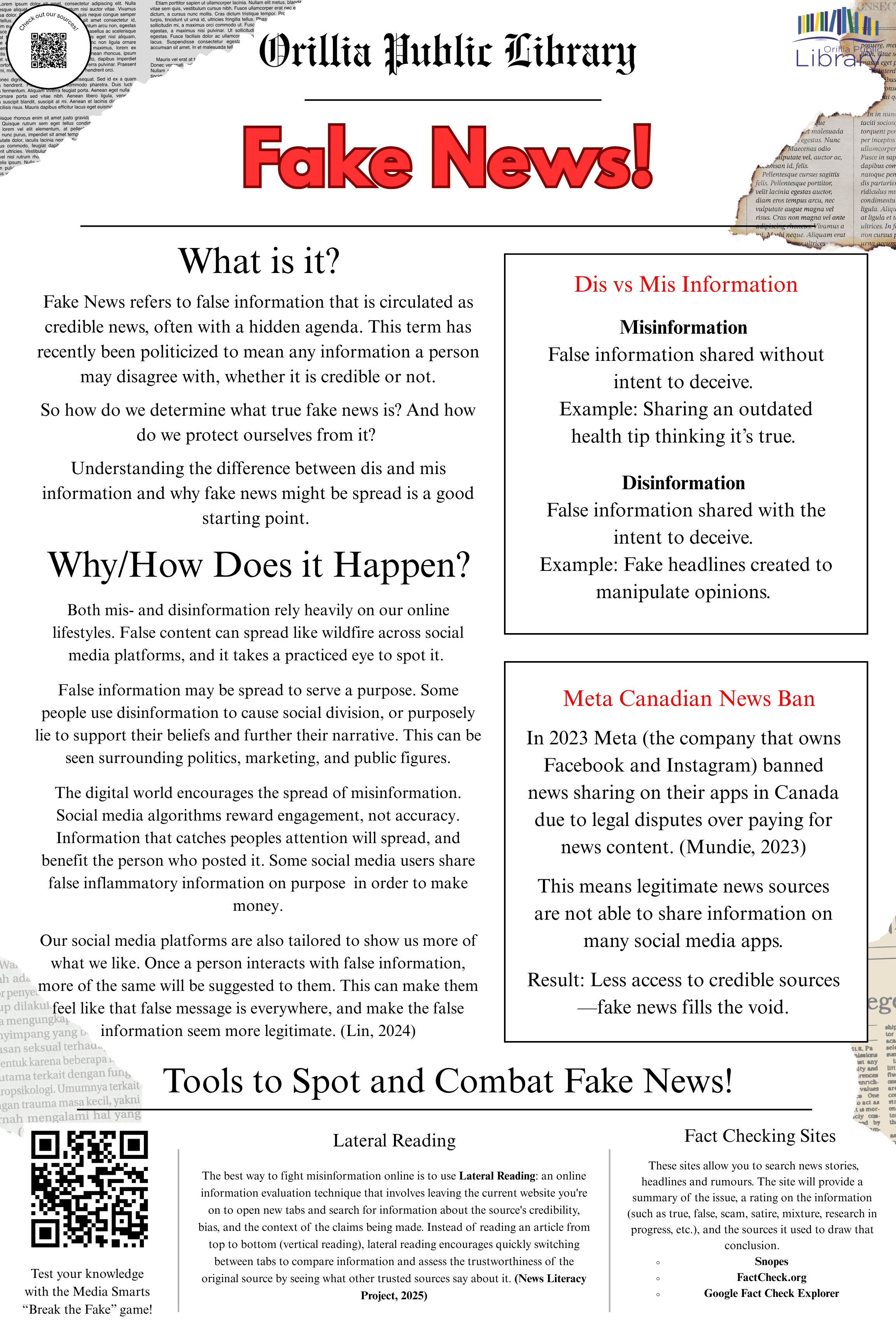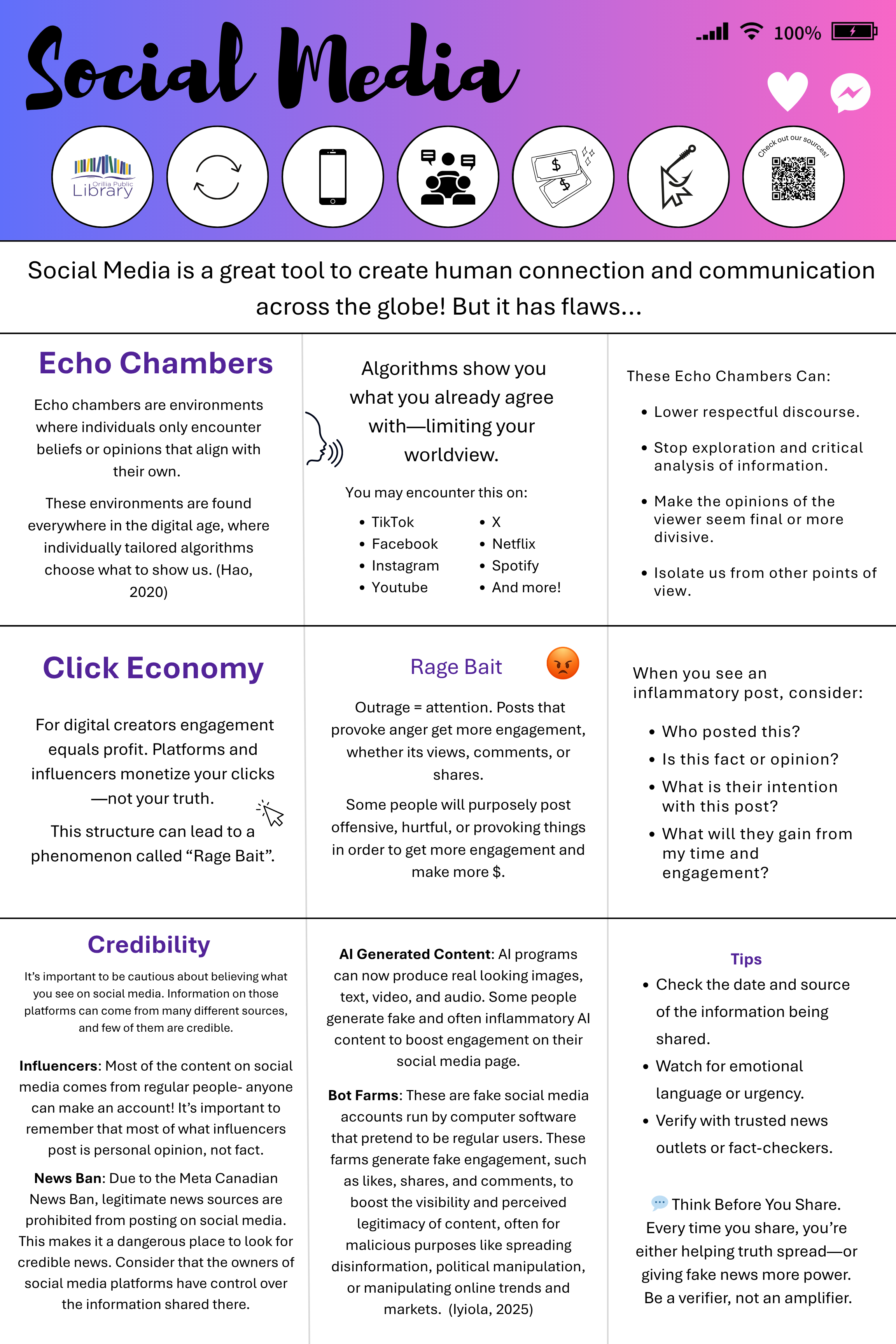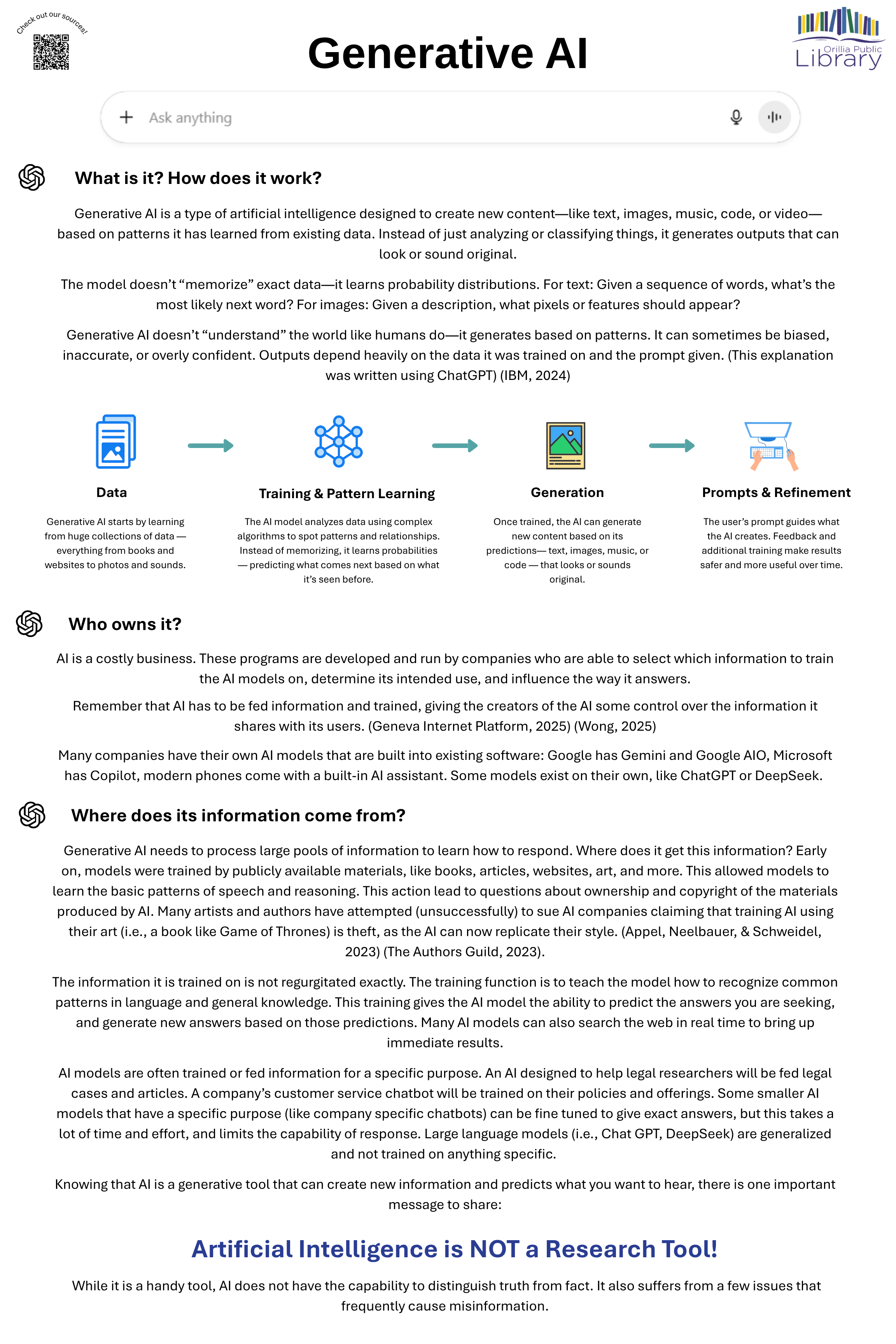
In our digital age, we have a whole world of information at our fingertips. While we now have access to more information than ever, technology makes it very easy to spread false information that can confuse and influence the public. It is our responsibility as information seekers to make sure we are verifying the information we find and assessing it critically to keep our digital spaces safe, truthful, and respectful.
Information Literacy: Information literacy is the ability to recognize when information is needed, and to effectively find, evaluate, organize, and use that information to solve problems and make decisions. It encompasses not just research skills, but also critical thinking and an understanding of the legal and ethical implications of information use. (ALA, 2025)
Digital Media Literacy: Digital media literacy is the ability to think critically about the media we consume, and to access, use, and engage with with digital media of all kind in an effective, responsible, and meaningful way. (Media Smarts, 2025)
| Misinformation vs. Disinformation |
|
Misinformation False information shared without intent to deceive. Example: Sharing an outdated health tip thinking it’s true. Disinformation False information shared with the intent to deceive. Example: Fake headlines created to manipulate opinions. |
| Resources and Organizations |
|
A Canadian run non-profit that creates research and resources for digital literacy education. They provide free educational tools for teachers, parents, and the public. An American non-profit that provides educational resources centering around digital literacy and digital citizenship for grades k-12. This website provides age ratings and content guides for different media types, such as movies, books, gaming, and more. A Canadian organization that provides a free "digital media literacy program that equips students with the habits and skills they need to find and evaluate online information and to determine what to trust." They offer games, videos, activities, and curriculum tips for parents and educators. A Canadian organization that provides hands on teaching resources about democracy and citizenship in Canada. |
| Tips and Tools |
|
| Games and Activities |
| These games and activities will give you the skills you need to fight misinformation and disinformation at the source:
Harmony Square Break the Fake Stanford – Civic Online Reasoning (COR) |
Check Out Our Media Literacy Week Posters!


Contact Us










 Subscribe to this Page
Subscribe to this Page